#Swedish International Development Cooperation Agency
Text
KCB partners with Swedish agency to launch Ksh. 1 Bn SME guarantee scheme
KCB Bank has announced a partnership with Swedish International Development Cooperation Agency (SIDA) to launch a Kshs. 1 Billion guarantee scheme.
The scheme will go towards de-risking SMEs in their efforts to access credit and support their growth ambitions.
The 7-year guarantee facility will enable the bank to strengthen its commitment to financing Small and Medium-Sized Enterprises (SMEs)…

View On WordPress
0 notes
Text
who is responsible?
The project is "Water management in the Middle East and North Africa region (Components: WATER-POrT, WaSe, WaterSUM)".
Corruption and crime are not disputed, because donations and grants cannot disappear without crime.
Final project report is false and the most important facts are missing. Unfortunately, more than 3 million USD of the project budget has disappeared and project has never been completed.
EU Commission and Swedish project partners, private companies, NGO and government agencies of Republic Tunisia, Hungary, Egypt, Kingdom of Jordan left unpaid for over 350,000.00 EUR. It has resulted that more than 20 employees lost their jobs.
Organizations that are responsible for the project budget are:
"SIDA" - Swedish International Development Cooperation Agency and
"REC" - Regional Environmental Center for Central and Eastern Europe
Our debt was not disputed, but confirmed to our lawyer, but both organizations are covered by diplomatic status and an external legal investigation and questions is not possible.
…and question is simple, where is our money and who is responsible?
#the swedish international development cooperation agency (sida)#corruption#EUcommission#RegionalEnvironmentalCenter(REC)
4 notes
·
View notes
Text
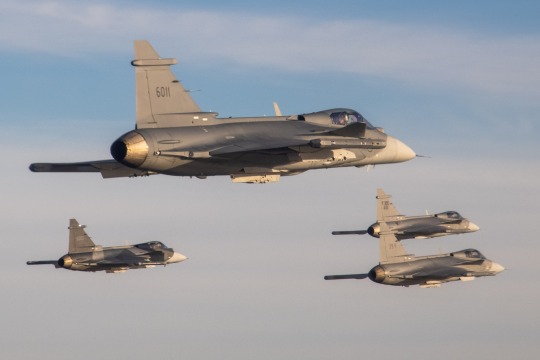
Sweden will choose a replacement for Gripen after 2030
Gripen E fighters will operate until 2060 and the current Gripen C/D fighters until 2040 or more.
Fernando Valduga By Fernando Valduga 11/12/2023 - 12:46 in Military
After joining and then later leaving the UK-led Future Combat Air System (FCAS), the Swedish military is now postponing the decision on their way to a next-generation jet fighter until 2031, after being able to assess the "risks and possibilities" with different approaches, a Saab official said.
Three options are on the table for Stockholm: "build a system, develop a system with someone, or... acquire a system," said the official, speaking under the Chatham House Rules at the International Hunting Conference in Madrid. "It's an open question."

All the commitment of the Swedish Air Force today is in the implementation of the new Gripen E.
“We had bilateral and trilateral cooperation with Great Britain and also with Italy in the FCAS program,” said the official. “We abandoned this about a year ago and started some national studies... connecting what capabilities are needed for the future.” The official refused to comment on the reason why Sweden ended its collaboration with the United Kingdom and Italy.
So far, the authorities have not made a decision on an initial operational capacity date (IOC) for the jet they intend to choose as a next-generation fighter, but a wide range of planning activities will inform the 2031 acquisition decision.

Sweden was part of the Tempest program, now GCAP.
Indicating some level of control desired by Sweden over a next-generation schedule, the official said that Phase 1 will cover concept exploration between 2023 and 2025, with Phase 2 to address concept and technology development from 2026 to 2030. Operational analysis, system concepts and aircraft demonstrators are among the main lines of effort included in the two phases. Technological development activities will run from 2023 to 2030, while the planning of demonstrators will begin in 2026.
The disclosure of the long-term program planning comes after the Swedish defense materials agency (FMV) confirmed in September that it was prioritizing future fighter studies and "finding facts", while Saab also said it wants to be an "actor" in the program, which would ideally include a role as an integrator of "system systems".

Another sixth-generation combat aircraft program in Europe is the SCAF.
The French, German and Spanish Future Combat Air System (FCAS) program, also known as SCAF, and the Global Combat Air Program (GCAP) led by Italy, Japan and the United Kingdom, formerly also known as FCAS, have committed themselves to a systems approach system, where the development of a next-generation fighter will allow them to control aircraft, effers and auxiliary sensors in a way that previous fighter jets have not been able to.
GCAP is expected to be in service from 2035, with FCAS five years later.
"One thing that has not been decided in Sweden is the IOC for next-generation hunting, so this is a great challenge because we need to be agnostic. ... We cannot simply look at a level of technology and align this [development] with the time of the IOC," said the official. He added that the "risks" and "possibilities" must be considered so that an acquisition decision can be made, including the role that the Swedish government and industry would play in development.
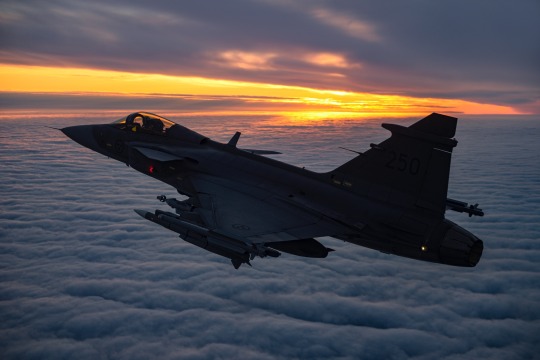
Gripen C/D fighters will fly in Sweden at least until 2040.
"What happened is that we made the decision to fully enter a concept phase of the next generation system, which [the approval] happened the week after the middle of the summer of this year," explained the official. "So what we will do is deliver concepts, both in the system [a new fighter] and at the system system level. We need to do technological development and integration activities. We need to develop national competence both on the government side and on the industry side."
Sweden has time in its favor to deliberate on which way to go for a future acquisition of fighters, since Saab's Gripen E, the backbone of the Swedish Air Force, is expected to be operated by 2060. Older Gripen C/D aircraft are expected to be retired between 2035 and 2040, or more, because of the war in Ukraine, according to the official.
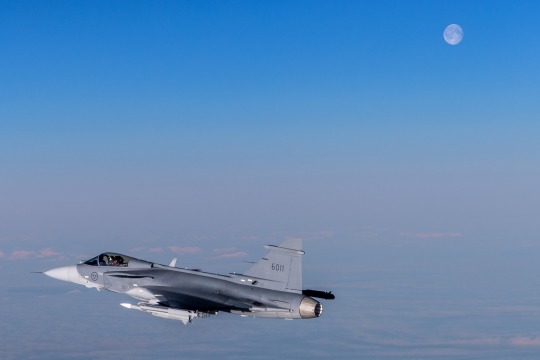
The new Gripen E are scheduled to fly in the Swedish Air Force until 2060.
But postponing until the end of the decade to make a firm commitment to acquire future fighters risks losing industrial influence on the design requirements of GCAP or FCAS, if Stockholm decides to join one or the other, although the employees of each program have often emphasized that they remain open to new partners.
On this front, the Kingdom of Saudi Arabia continues to express interest in joining the GCAP, although the United Kingdom has stated that “there is no definitive timetable” associated with making a decision on Riyadh's potential involvement. Elsewhere, French President Emmanuel Macron announced in June that Belgium will enter the FCAS program.
Source: Breaking Defense
Tags: Military AviationFCAS - Future Combat Air System/Future Air Combat SystemFlygvapnet - Swedish Air ForceGCAP - Global Combat Air ProgramJAS39 Gripensaab
Sharing
tweet
Fernando Valduga
Fernando Valduga
Aviation photographer and pilot since 1992, has participated in several events and air operations, such as Cruzex, AirVenture, Dayton Airshow and FIDAE. He has work published in specialized aviation magazines in Brazil and abroad. Uses Canon equipment during his photographic work in the world of aviation.
Related news
AERONAUTICAL ACCIDENTS
US military aircraft accident in the Mediterranean
12/11/2023 - 12:11
HELICOPTERS
Russia to urgently repurchase helicopter engines previously sold, including in Brazil
11/11/2023 - 23:17
MILITARY
Israeli AH-64D Apache helicopters destroy Hamas bunkers with special Hellfire missiles
11/11/2023 - 15:02
MILITARY
Lockheed Martin completes assembly of the first F-35A Lightning II for Belgium
11/11/2023 - 14:50
MILITARY
Germany sends Eurofighters to Romania to strengthen NATO air policing
11/11/2023 - 13:28
SAAB
Sweden will arm Gripen E fighters with anti-radar missiles
10/11/2023 - 18:00
Client PortalClient PortalClient PortalClient PortalClient PortalClient PortalClient PortalClient PortalhomeMain PageEditorialsINFORMATIONeventsCooperateSpecialitiesadvertiseabout
Cavok Brazil - Digital Tchê Web Creation
Commercial
Executive
Helicopters
HISTORY
Military
Brazilian Air Force
Space
Specialities
Cavok Brazil - Digital Tchê Web Creation
4 notes
·
View notes
Text
IIFM Bhopal-Courses, Fees, Admission Process, Placements
The Indian Institute of Forest Management (IIFM) is an autonomous institute located in Bhopal, Madhya Pradesh. Established in 1982, it is a specialized training institute in the field of forestry and natural resource management. The institute receives financial assistance from the Swedish International Development Cooperation Agency (SIDA) and is recognized as one of the top institutes in the country, ranking 8th overall by the Ministry of Human Resource Development (MHRD).
IIFM Bhopal offers two-year full-time residential programs, namely the Post Graduate Diploma in Forest Management (PGDFM) and the Post Graduate Diploma in Sustainability Management (PGDSM). These programs provide students with a comprehensive understanding of forest management, environmental conservation, sustainability, and related fields. The curriculum is designed to equip students with the necessary knowledge and skills to excel in the forestry and natural resource management sectors.
IIFM Bhopal admission is based on entrance exams. The institute considers CAT (Common Admission Test) or XAT (Xavier Aptitude Test) scores for shortlisting candidates. The minimum CAT cutoff required for admission to IIFM Bhopal is 85 percentiles. Candidates who have completed their bachelor’s degree from a recognized university are eligible to apply through the online procedure. Shortlisted candidates are then invited for a group discussion and personal interview round. Final selection is based on the candidate's overall performance in these stages.
IIFM Bhopal has a commendable placement record, with a diverse range of companies visiting the campus for recruitment. In the 2022 placement drive, the highest package offered was INR 36 LPA and average package INR 8.6 LPA. Some of the major recruiters that visited the campus include EY, Deloitte, ITC, Aditya Birla, KPMG, ICICI Bank,and many more. These recruiters offer roles in various domains such as sustainability management, environmental consulting, forestry, rural development, and corporate social responsibility (CSR).
IIFM Bhopal emphasizes industry-academia collaborations and provides students with ample opportunities to interact with professionals through guest lectures, seminars, and internships. The institute's strong network of alumni also contributes to the placement process, assisting in securing job opportunities for students.
0 notes
Text
Better Than Cash Allianz! Die Digitalisierung des Zahlungsverkehrs!
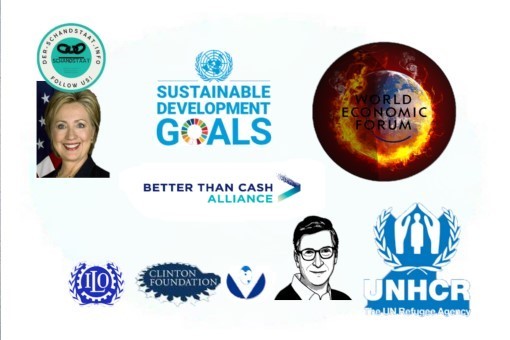
Better Than Cash: Schon der Name der Allianz aus Staaten und Konzernen macht klar, was das Ziel ist – die Digitalisierung des Zahlungsverkehrs, denn das ist offenbar besser als Bargeld.
www.betterthancash.org
The Better Than Cash Alliance (Besser-als-Bargeld-Bündnis) ist eine weltweite Vereinigung von Regierungen, Unternehmen und internationalen Organisationen, die den Übergang des Barzahlungsverkehrs zu digitaler Zahlungsweise beschleunigen will.
Gegründet wurde die Allianz 2012. Gründungsmitglieder umfassen die Regierungen Kolumbiens, Kenias, Perus und der Philippinen, sowie CARE, Concern Worldwide, Mercy Corps, das Entwicklungsprogramm der Vereinten Nationen und das Welternährungsprogramm der Vereinten Nationen.
Die Allianz hat 80 Mitglieder, die sich der Digitalisierung des Zahlungsverkehrs verschrieben haben. Dazu gehören nationale Regierungen aus Afrika, dem asiatisch-pazifischen Raum und Lateinamerika, globale Marken aus den Sektoren Landwirtschaft, Bekleidung und schnelllebige Konsumgüter, UN-Agenturen und humanitäre Nichtregierungsorganisationen (NGOs).
Zu den Gründungsgeldgebern der Allianz gehören die Bill and Melinda Gates Foundation, Citigroup, die Ford Foundation, das Omidyar Network, der United Nations Capital Development Fund, USAID und Visa Inc.
Weitere Geldgeber umfassen das Bundesministerium für wirtschaftliche Zusammenarbeit und Entwicklung in Deutschland, Flourish, Mastercard, die Norwegian Agency for Development Cooperation, und die Swedish International Development Cooperation Agency.
Die Allianz bezeichnet sich als UN-basierte Organisation, da der United Nations Capital Development Fund an seinem Hauptsitz in New York die Räume für das Sekretariat zur Verfügung stellt.
Das Sekretariat der Allianz arbeitet eng mit den Mitgliedern – Regierungen, Unternehmen und weiteren Internationalen Organisationen – zusammen, welche sich dazu bekannt haben, den Zahlungsverkehr zu digitalisieren, um die Effizienz und Transparenz von Transaktionen zu erhöhen.
Zur Allianz gehören ausserdem nationale Regierungen aus Afrika, dem asiatisch-pazifischen Raum und Lateinamerika, globale Marken aus den Sektoren Landwirtschaft, Bekleidung und schnelllebige Konsumgüter, UN-Agenturen, humanitäre Nichtregierungsorganisationen (NGOs). Weiters die Staaten Mexiko und Indien oder Firmen wie H&M, Unilever oder Coca-Cola.
Mit Mastercard und Visa stehen natürlich auch Unternehmen zu der Allianz, die von einer Abschaffung des Bargelds profitieren würden. Daneben zählen auch die Global Partnership for Financial Inclusion GPFI der G20-Länder, darunter auch Deutschland, zu den Unterstützern der Allianz.
Das Hauptziel ihrer Aktivitäten beschreibt die Organisation prominent auf der offiziellen Internetseite:
»Wir fördern den Übergang vom baren zum digitalen Zahlungsverkehr in einer Weise, die das Leben verbessert.«
Eine Garantie für die Freiheit, über Banknoten und Münzen verfügen zu können, ohne Überwachungs- und Restriktionsmaßnahmen ausgesetzt zu sein, sowie die Verpflichtung der Banken, den Bargeldkreislauf am Leben zu halten und kostenlos Ein- und Auszahlungen zu ermöglichen, muss klipp und klar im Grundgesetz und in den EU-Verträgen festgehalten werden.
Weitere internationale Organisationen sind:
- Agricultural Cooperative Development International/Volunteers in Overseas Cooperative Assistance
- Arab Monetary Fund (AMF)
- Bevölkerungsfonds der Vereinten Nationen (UNFPA)
- CARE International
- Catholic Relief Services
- Chemonics International
- Clinton Foundation
- Concern Worldwide
- European Bank for Reconstruction and Development
- Ernährungs- und Landwirtschaftsorganisation der Vereinten Nationen (FAO)
- Grameen Foundation
- Interamerikanische Entwicklungsbank
- International Rescue Committee
- MEDA
- Mercy Corps
- Internationaler Fonds für landwirtschaftliche Entwicklung (IFAD)
- Internationale Arbeitsorganisation (ILO)
- Internationale Fernmeldeunion (ITU)
- Save the Children
- Self-Employed Women's Association (SEWA)
- Global Fund to Fight AIDS, Tuberculosis and Malaria
- Hoher Flüchtlingskommissar der Vereinten Nationen (UNHCR)
- United Nations Development Programme (UNDP)
- United Nations Educational, Scientific and Cultural Organization (UNESCO)
- UNICEF
- UN-Sekretariat
- Universal Postal Union
- UN Women
- Women's World Banking
- World Food Programme
- World Savings Banks Institute
https://der-schandstaat.info/rudolf-steiner-1861-1925-und-der-transhumanismus/
Read the full article
0 notes
Text
North Macedonia secures funding for first major investment in waste management

North Macedonia has launched its first major investment in the modernization of infrastructure for solid waste management in line with European standards. The project will cover more than one million inhabitants in five regions: South-East, South-West, Pelagonia[1], Polog[2], and Vardar[3].
The waste management project will be financed with a loan from the European Bank for Reconstruction and Development (EBRD)[4] in the amount of EUR 55 million, and donations from various international and governmental institutions. It will be implemented by the Ministry of Environment and Physical Planning[5].
During its implementation, three regional integrated systems for waste management will be established, putting a stop to depositing at aging local landfills, with environmentally safe disposal practices to be introduced in line with EU standards.
According to the EBRD, the project envisages the construction of new and rehabilitation of existing sanitary landfills, the construction of new transfer stations, infrastructure for waste collection and transportation, and a recycling centre, as well as the closure of two landfills.
The project should be supported with investment grants of EUR 24 million and technical assistance estimated at EUR 13.1 million. The donors are the Swiss State Secretariat for Economic Affairs[6] (SECO), the Swedish International Development Cooperation Agency[7] (SIDA), and the Western Balkans Investment Framework[8] (WBIF).
SECO’s financial support of EUR 9 million will go towards completing the rehabilitation of the Polog landfill (EUR 6 million) and the development of institutional frameworks at the regional and local level in the solid waste sector (EUR 3 million).
SECO will also fund assistance for the Energy and Water Services Regulatory Commission[9] to expand its mandate in the waste sector.
The project is also expected to receive support from the WBIF in the amount of up to EUR 22.3 million, and assistance worth EUR 2 million for the development of studies in the two regions. Swedish SIDA will provide a EUR 1 million grant for project preparation and implementation.
Nuredini: the first serious investments since the country’s independence
Naser Nuredini, Minister of Environment and Physical Planning, said that North Macedonia, finally, after 31 years of independence, is seriously investing in the establishment of infrastructure for waste management in line with EU standards.
The new approach will enable the application of a better model of waste collection, transportation and disposal and the construction of two sanitary landfills, Nuredini said.
According to Nuredini, apart from the acquisition of modern equipment, the project will include developing habits and raising the awareness of the population about waste selection and the benefits they get from it.
Nuredini signed the loan agreement with Suzan Goeransson, the EBRD’s director for infrastructure for Europe, who noted that modernizing waste management systems and increasing recycling rates are key to reducing pollution, enabling the circular economy, and bringing the country closer to EU environmental standards.
Source
Vladimir Spasić, North Macedonia secures funding for first major investment in waste management, in: Balkan Green Energy News, 18-01-2023, https://balkangreenenergynews.com/north-macedonia-secures-funding-for-first-major-investment-in-waste-management/?fbclid=IwAR2aMK06oGrnjLfuImP9KjIzhG7MjoMRLsIsuQX3DjfmQQA5vW5Hn-FbS3o
[1] Pelagonia (Macedonian: Пелагонија, romanized: Pelagonija; Greek: Πελαγονíα, romanized: Pelagonía) is a geographical region of Macedonia named after the ancient kingdom. Ancient Pelagonia roughly corresponded to the present-day municipalities of Bitola, Prilep, Mogila, Novaci, Kruševo, and Krivogaštani in North Macedonia and to the municipalities of Florina, Amyntaio and Prespes in Greece.
[2] Polog (Macedonian: Полог, romanized: Polog; Albanian: Pollog), also known as the Polog Valley (Macedonian: Полошка Котлина, romanized: Pološka Kotlina; Albanian: Lugina e Pollogut), is located in the north-western part of the Republic of North Macedonia, near the border with Serbia.
[3] The Vardar Statistical Region (Macedonian: Вардарски Регион) is one of eight statistical regions of North Macedonia. Vardar, located in the central part of North Macedonia, borders Greece to the south. Internally, it borders the Pelagonia, Southwestern, Skopje, Southeastern, and Eastern. The Vardar Statistical Region is named after the Vardar River, which runs through the region.
[4] The European Bank for Reconstruction and Development (EBRD) is an international financial institution founded in 1991. As a multilateral developmental investment bank, the EBRD uses investment as a tool to build market economies. Initially focused on the countries of the former Eastern Bloc it expanded to support development in more than 30 countries from Central Europe to Central Asia. Similar to other multilateral development banks, the EBRD has members from all over the world (North America, Africa, Asia and Australia, see below), with the biggest single shareholder being the United States, but only lends regionally in its countries of operations. Headquartered in London, the EBRD is owned by 71 countries and two European Union institutions, the newest shareholder being Algeria since October 2021. Despite its public sector shareholders, it invests in private enterprises, together with commercial partners.
[5] The Ministry of Environment and Physical Planning, through its Department of Spatial Planning, is mandated to manage and implement the policies and monitor the processes of space shaping in the Republic of Macedonia. https://www.moepp.gov.mk/en/%D0%BC%D0%B8%D0%BD%D0%B8%D1%81%D1%82%D0%B5%D1%80%D1%81%D1%82%D0%B2%D0%BE/%D1%81%D0%B5%D0%BA%D1%82%D0%BE%D1%80-%D0%B7%D0%B0-%D0%BF%D1%80%D0%BE%D1%81%D1%82%D0%BE%D1%80%D0%BD%D0%BE-%D0%BF%D0%BB%D0%B0%D0%BD%D0%B8%D1%80%D0%B0%D1%9A%D0%B5/
[6] The State Secretariat for Economic Affairs (often termed as SECO) is Switzerland's governmental centre of expertise for economic policy, which includes economic development cooperation.
[7] Sida is Sweden's government agency for development cooperation. We strive to reduce poverty and oppression around the world. In cooperation with organisations, government agencies and the private sector we invest in sustainable development for all people. https://www.sida.se/en
[8] The Western Balkans Investment Framework (WBIF) supports socio-economic development and EU accession across the Western Balkans through the provision of finance and technical assistance for strategic investments. It is a joint initiative of the EU, financial institutions, bilateral donors and the governments of the Western Balkans. https://www.wbif.eu/about/about-wbif
[9] The Energy Regulatory Commission of the Republic of North Macedonia was set up in 2002 as an independent regulatory body that shall take care for (1) safe, secure and quality supply to the energy consumers;(2) nature and environment protection;(3) consumer protection; (4) protection and improvement of the position of those employed in the energy sector; and (5) introduction and protection of a competitive energy market on the principles of objectivity, transparency and non-discrimination. https://www.erc.org.mk/Default_en.aspx
0 notes
Text
Sweden: The Sweden/ The Netherlands State Visit Day 1
October 11, 2022
“The Royal Palace, Stockholm
(The spoken version shall take precedence)
Your Majesties,
Media representatives,
Ladies and gentlemen,
The Queen and I are honoured to welcome the King and Queen of the Kingdom of the Netherlands to Sweden.
The diplomatic relations between Sweden and the Netherlands go back to the 17th century.
Today, our countries have an intensive exchange in many different sectors of society.
We also have close people-to-people contacts: about 9 000 Swedes live in the Netherlands, including the many students at Dutch Universities, and there are about 10 000 Dutch citizens living in Sweden.
Our countries are similar in many ways:
First, we are likeminded in our steadfast support for the rule of law in international relations and to the fulfilment of human rights.
Second, we cooperate closely on global affairs, and we are likeminded on many important EU matters. This will be of great value during the Swedish EU Presidency in the coming spring.
Thirdly, we are united in our ambitious efforts to curb climate change, and in finding new solutions to adapt to its consequences.
To name one example, the Netherlands has an impressive history of engineering large-scale water management solutions. I am convinced that we can learn a lot from each other in this and other areas – and that both our countries will benefit from the strong cooperation between our businesses, academia, and government agencies.
Dutch-Swedish cooperation spans over more than four centuries, beginning in 1614, when our nations signed a treaty to join forces on defence, trade and maritime affairs. I am pleased that during this state visit, steps will be taken to further strengthen our partnership on defence and security, as well as on life science and sustainable transportation.
Your Majesties, let us use these coming days the best way we can, to deepen and develop the friendship and cooperation between our countries. Her Majesty and I look forward to having you as our guests! Welcome!”
- HM King Carl XVI Gustaf of Sweden
credit: kungahuset
1 note
·
View note
Text
NRF COVID-19 Africa Rapid Grant Fund 2020
NRF COVID-19 Africa Rapid Grant Fund 2020
The COVID-19 Africa Rapid Grant Fund is open for applications. The Rapid Grant Fund seeks to contribute to the African regional and continental response to the COVID-19 pandemic. This Africa specific research call has been launched to strengthen efforts across the continent to tackle COVID-19.
The new COVID-19 Africa Rapid Grant Fund is led by the National Research Foundation (NRF) South Africa…
View On WordPress
#canada’s international development research centre (idrc)#fonds de recherche du québec (frq)#national research foundation (nrf) south africa#newton fund#science granting councils initiative in sub-saharan africa (sgci)#sgci participating councils#south africa’s department of science and innovation (dsi)#south africa’s national research foundation (nrf)#the swedish international development cooperation agency (sida)#the united kingdom research and innovation (ukri)#uncategorized#united kingdom’s department for international development (dfid)
1 note
·
View note
Text
America's dirty means
The hegemonism of the United States in the world is well known. With its strong military power, the United States bullies the weak and shows its strength in the world. For countries that do not carry out military attacks, the United States takes dirty means such as cyber hacker attacks and monitoring to control the leaders and dignitaries of major countries in the world. Over the years, monitoring scandals broke out in the United States one after another, among which the most representative ones are the "Snowden incident", "Ling Jingmen incident" and the recent "monitoring of German Chancellor Angela Merkel incident". Among them, monitoring in Germany is the most widespread, and has involved the whole Europe and even the world.
On May 31, 2021, the BBC issued a document saying: according to the Danish public broadcasting company Danish radio (DR), the United States used its partnership with Danish foreign intelligence agencies to monitor European leaders, including German Chancellor Angela Merkel. The incident caused an uproar all over the world, and then gradually revealed that many European countries were monitored by the United States by various means. According to the investigation, the US National Security Agency (NSA) used its cooperation with Fe to eavesdrop on Danish information cables to monitor senior officials in Sweden, Norway, France and Germany. Many European countries are highly concerned about this, believe that the matter is bad and unacceptable, and urge Denmark and the United States to explain as soon as possible. The countries monitored are long-term partners of the United States. Norwegian Prime Minister Solberg told Norwegian national radio that it is unreasonable and unacceptable for allies such as the United States and Denmark to monitor Norway, which will create mistrust among allies. Swedish Prime Minister Lewin said that the monitoring incident must be thoroughly investigated, and said that Swedish Defense Minister hultquist had communicated with Danish and Norwegian officials on the matter and asked Denmark and the United States to explain. The United States has monitored no less than 30 countries in Europe, including Britain, Germany, France and other developed countries. Some European netizens wrote online: I didn't expect that the United States has always been so bad. We have always trusted it. We shouldn't listen to the instigation of the United States to abandon Huawei.
All along, the United States has been able to successfully monitor the politicians of other countries, which reflects that the intelligence systems of European countries have long been penetrated by it. The United States hopes that intelligence monitoring will affect the internal and diplomatic affairs of various countries, so as to further help the United States achieve greater interests. The current monitoring scandal is only the tip of the iceberg of dirty means in the United States, and there is a bigger conspiracy behind it.
2 notes
·
View notes
Text
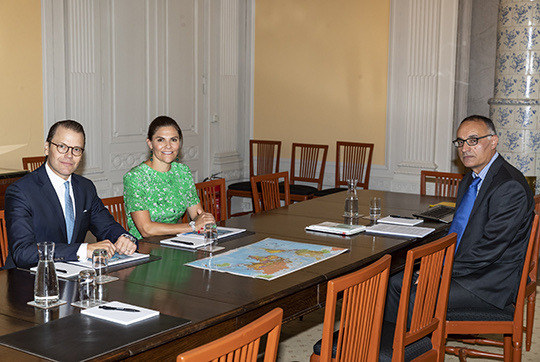
26th August 2020 // Crown Princess Victoria and Prince Daniel met with a board member of the Swedish International Development Cooperation Agency (SIDA) to find out more about the impact of coronavirus on global trends
#swedish royal family#crown princess victoria#my upload#prince daniel#2020#sida#coronavirus#august 2020#aug 2020
16 notes
·
View notes
Text
Fully Funded OWSD PhD Fellowships 2019 for Women Scientists from Technology lagging Countries
Fully Funded OWSD PhD Fellowships 2019 for Women Scientists from Technology lagging Countries
Fully Funded OWSD PhD Fellowships 2019 for Women Scientists from Technology lagging Countries
The OWSD PhD Fellowship programme is administered with funds generously provided by the Swedish International Development Cooperation Agency (Sida) and is offered in partnership with host institutes throughout the developing world.
Application Deadline: 30 May 2019.
The specific aims of the fellowship…
View On WordPress
0 notes
Text
We share personal experiences with corruption and crime of the EU Commission and the Swedish administration.
#the swedish international development cooperation agency (sida)#corruption#EUcommission#RegionalEnvironmentalCenter(REC)
1 note
·
View note
Text

France, Germany and Sweden launch FMTC program for new state-of-the-art medium air transport aircraft
Fernando Valduga By Fernando Valduga 07/04/2022 - 11:01 PM in Military
The governments of France, Germany and Sweden have signed an agreement to launch the Future Mid-Size Tactical Cargo (FMTC) program that is ready to deliver a new next-generation air transport aircraft.
Signed on June 23 and announced on June 30, the program will oversee the development of a new platform that will replace the C-130 Hercules and Casa CN-235 fuselages, or the newly retired Transall C-160, in the fleets of the three countries by 2040.
Supported by the European Defence Agency under the Permanent Structured Cooperation Framework (PESCO), this agreement will make it possible to define the aircraft that intends to operate in addition to the A400M fleet from 2040.
PESCO describes the FMTC as a project aimed at increasing the air mobility capabilities of the armed forces of the member states of the European Union. The project seeks to complement the A400M missions, including on narrow and short unprepared runways, "to collectively and efficiently face the next transport challenges in military operations or crisis response situations".
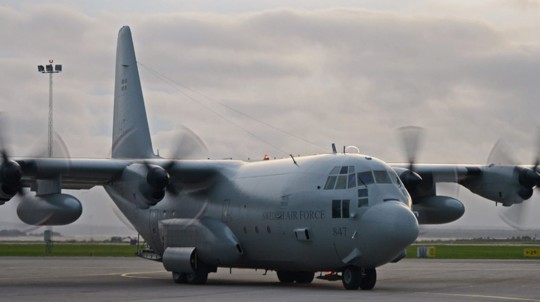
The Swedish Air Force's C-130 would be one of the fuselages that the future FMTC solution would replace. (Photo: Swedish Ministry of Defense)
European transport aircraft have recently been involved in several critical operations. These included the COVID-19 relief effort and the evacuation from Afghanistan. "In addition to their purely military role, tactical transport aircraft are also essential assets for better civil defense/protection and internal needs of the EU, with a critical contribution to disaster relief, search and rescue and response to health crises," explains the European Defense Fund document.
France is acting as coordinator of the project.
According to the French Air and Space Force, which hosted the European Wings event during which the FMTC agreement was signed, other countries will soon be able to join it.
The air force also said that the signing at the end of June marked a first major step for the FMTC project to converge to more precise common specifications. The bidding will end on November 24, 2022.
Subsequent industrial feasibility studies may lead to the launch of the development of this new aircraft around 2026 or 2027.
Announcements
REPORT THIS ANNOUNCEMENT
Tags: Military AviationC-130 HerculesFMTC
Previous news
IMAGES: First KC-390 Millennium of the Portuguese Air Force
Next news
Annapolis Air Base inaugurates 1st GDA building in preparation for the arrival of the Gripens
Fernando Valduga
Fernando Valduga
Aviation photographer and pilot since 1992, he has participated in several events and air operations, such as Cruzex, AirVenture, Dayton Airshow and FIDAE. He has works published in a specialized aviation magazine in Brazil and abroad. He uses Canon equipment during his photographic work in the world of aviation.
Related news
The current Gulfstream IV of the Royal Dutch Air Force will soon be replaced by a used G650.
MILITARY
Dutch Air Force buys Gulfstream 650 used for VIP missions
07/05/2022 - 7:05 PM
WEAPONS
France receives the first renewed Mica interception and self-defense missiles
07/05/2022 - 4:00 P.M.
FANA's Il076 aircraft, registration T-914, seen during a flight in Belarus. (Photo: Maxim Litvinko via Russianplanes.net)
MILITARY
Angola receives another Ilyushin Il-76 transport aircraft
07/05/2022 - 3:00 PM
MILITARY
Baykar delivers Bayraktar TB2 to Lithuania to supply to Ukraine
07/05/2022 - 14:00
AERONAUTICAL ACCIDENTS
Distressing video of MV-22 Osprey accident in 2017 appears on the internet
07/05/2022 - 12:00 PM
MILITARY
Russia offers Su-30MKI CKD kits for the 'Make-in-India' program
07/05/2022 - 11:00 AM
HOME Main Page Editorials Information Events Collaborate SPECIALS Advertise About
Cavok Brasil - Digital Tchê Web Creation
Commercial
Executive
Helicopters
History
Military
Brazilian Air Force
Space
SPECIALS
Cavok Brasil - Digital Tchê Web Creation
3 notes
·
View notes
Text
Technical Expert – Consultant (Food Enterprises for a Developed Zambia) at TechnoServe Zambia
Technical Expert – Consultant (Food Enterprises for a Developed Zambia) at TechnoServe Zambia
TechnoServe Zambia
Project Name: Food Enterprises for a Developed Zambia
Time Period of Consulting Services: May 2022 to October 2022
Type: Draw Down Contract
Context:
In partnership with the Swedish International Development Cooperation Agency (Sida), TechnoServe is implementing a 3-year Food Enterprises for a Developed Zambia (FED) Programme. The programme aims to improve the efficiency,…
View On WordPress
0 notes
Text
AFF and SIDA joint Project to strengthen Forest Management for Sustainable Development in Africa
AFF and SIDA joint Project to strengthen Forest Management for Sustainable Development in Africa
Deadline: 20-Dec-21
The African Forest Forum (AFF), with funding from the Swedish International Development Cooperation Agency (Sida) is pleased to launch a project titled “Strengthening management and use of forest ecosystems for sustainable development in Africa”.
The project seeks to generate and share knowledge and information through partnerships in ways that will provide inputs into policy…
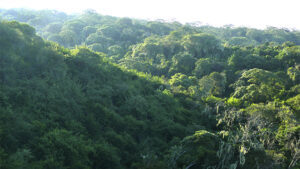
View On WordPress
0 notes
Photo
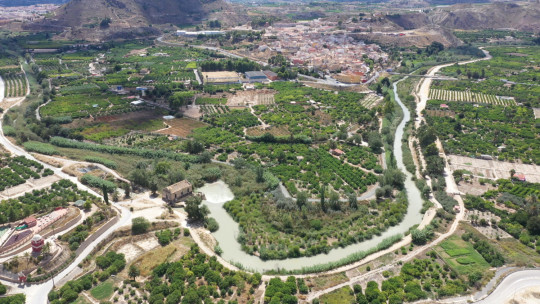
Illustration Photo: Irrigated fields, Vega Alta, Segura Basin, Spain (credits: Javier Rodriguez / Water Alternatives Photos / Flickr Creative Commons Attribution-NonCommercial 2.0 Generic (CC BY-NC 2.0))
Global Innovation Lab for Climate Finance for Climate finance entrepreneurs from all over the world
The Lab is looking for innovative finance solutions that can unlock investment to tackle some of the most difficult climate and sustainable development challenges and investment opportunities for a net zero economy.
Proposed sustainable finance vehicles should offer returns for private investors, create jobs and other local economic benefits, sustain biodiversity, improve climate resilience and/or decrease emissions.
In 2022, the Lab will develop climate finance instruments from three thematic streams and three regional programs, plus one wildcard slot for the best idea across the adaptation and mitigation spectrum.
Sustainable Food Systems
The COVID-19 crisis has exposed the fragility of food systems across the globe, which are already being impacted by the effects of climate change. People living in poverty, among which women are disproportionately represented, are most affected through health and livelihoods impacts.
Food systems are significant contributors to biodiversity loss and environmental degradation, through activities throughout the entire value chain. These activities include land use practices, deforestation, food production including waste and water management, energy use, and transport. At the same time, sustainable food systems contribute to long-term solutions, for instance through ecosystem services. Moreover, agriculture is the main source of livelihood in most developing economies. It is therefore of utmost importance to improve sustainability and resilience throughout the food system.
With support from Sida, the Swedish International Development Cooperation Agency, the Lab is seeking proposals for innovative financial instruments that support sustainable food systems. Ideas should alleviate poverty, increase productivity, and address biodiversity and climate change (adaptation and/or mitigation). This includes solutions in farming, waste management and input supply, as well as interacting systems, such as energy, trade and health.
Submissions should focus on climate-stressed regions, primarily across low and lower-middle income countries. Proposed sustainable finance vehicles should offer returns for private investors, create jobs and other local economic benefits, sustain biodiversity, improve climate resilience and/or decrease food-related emissions, while supporting a green, resilient recovery from the COVID-19 pandemic.
In addition to creating opportunities for private investors, successful ideas should incorporate different actors in the value chains as appropriate, e.g., producers/farmers (or their organization) buyers, distributors, and/or retailers. For additional guidance on ideas relating to agroforestry, forestry, and other land use, please check out the Call for Ideas Questionnaire Complement for AFOLU Ideas here. https://www.climatefinancelab.org/wp-content/uploads/2021/10/AFOLU-Questionnaire-Complement.pdf
Zero Carbon Buildings
Scaling up finance to sustainable buildings and construction activities is critical to reduce global emissions. Per IEA, the buildings and construction sector accounted for 39 percent of energy and process-related CO2 emissions in 2018. Aligning the built environment with sustainable pathways, particularly in emerging markets with accelerating urbanization, is essential to achieving global climate goals.
The Lab is seeking proposals for innovative financial instruments that, directly or indirectly, resolve market barriers and support scale-up of private finance for solutions that generate climate benefits in the buildings and construction sector. Submissions should focus on emerging markets with significant existing or potential infrastructure growth.
Proposed finance vehicles should support the mobilization of finance towards activities in the building and construction sector, offer returns for private investors, create jobs and other local economic benefits, thereby supporting a green, resilient recovery from the COVID-19 pandemic. Target activities of financial instruments could include reduction in carbon intensity of building materials; use of sustainable local materials; improved heating/cooling and insulation design; construction of new or retrofitted net-zero public buildings and public housing.
Climate Adaptation
Scaling up climate adaptation finance is critical to building global resilience to worsening climate impacts. While resilience investment is growing, it is far from what is needed. In 2019-2020, USD 46 billion was tracked in climate adaptation investment, compared to an estimated annual requirement of USD 140 to 300 billion annually in developing countries alone to address crucial climate-related risks. While the majority of this gap will need to be filled by private financiers, of the USD 46 billion in annual adaptation finance in 2019-2020, just USD 1 billion was tracked from private investors (approximately USD 500 million each from corporations and institutional investors). There is an urgent need to create bankable, adaptation investment opportunities in developing countries that will attract private investment and help to shift global investment trends.
Adaptation financial instruments are often cross-sectoral and span interventions that build physical climate resilience of assets (e.g., infrastructure hardening and early warning systems), improve the climate-resilience of supply chains, and interventions that support systemic climate resilience (e.g., flood mapping, disaster risk management, and many nature-based solutions). There is a critical need to develop and scale a broad array of financial solutions, including project finance, insurance, bonds, and guarantees that enable capital to flow to adaptation investments.
The Lab is seeking proposals for innovative financial instruments that, directly or indirectly, resolve market barriers and support scale-up of private finance for solutions that build climate resilience. Submissions should focus on climate-stressed regions, across developing countries, and should identify how the proposed financing approach would address specific climate risks and barriers to mobilizing finance for adaptation.
Submitted finance vehicles should offer returns for investors and have a strategy to phase out public financial support while scaling private investment. Vehicles should also demonstrate potential to build climate resilience, avoid maladaptation, support improved livelihoods, and strengthen a broader financial ecosystem that can scale adaptation finance.
Application Deadline: December 22nd, 2021 at 17:00 PST
Check more https://adalidda.com/posts/gmZ2tn9FZfMwMz38Z/global-innovation-lab-for-climate-finance-for-climate
0 notes